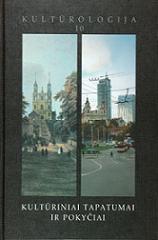Dabartinės Visuomenės Dvasinė Kultūra: Psichologiniai Religingumo Determinantai
Spiritual Culture In Contemporary Society: Psychological Determinants Of Religiousness
Author(s): Stanislovas JuknevičiusSubject(s): Anthropology
Published by: Lietuvos kultūros tyrimų
Keywords: religiousity; contemporary culture; analytic psychology; unconsciousness; worldview
Summary/Abstract: The article analyses the influence of individual’s psychic structure on his worldview. The origins and characteristics of religious beliefs are mostly considered in the light of analytic psychology. Carl Gustav Jung separated two basic psychological types of personalities, introverted and extroverted. Introverts search for God in their inner world, in contrast to extroverts whose attention is directed to the outside world. Besides, the nature and the direction of individuals’ spiritual search are frequently defined by their psychic structure. People of the sensing type do not tend to devote much attention to the issue of attitudes, and specifically of religion; they generally take the attitudes that are mostly widespread in the society. Individuals of the thinking type are not religious either. Most frequently they adjust their beliefs to the environment: in a religious society rationalists will find arguments supporting the existence of God, while in atheist societies they will have grounds for denying it. For the people of the feeling type religiousness primarily means specific feelings related to eternity and sacredness. As regards people of the intuitive type, they not only experience specific feelings, but are as well aware of other forms of communication with the transcendental reality. Intuitive introverts are the source and the basis of all religions. For the people of the intuitive type, the main source of information is the unconscious. Some part of the unconscious is composed of forgotten or deliberately unperceived psychic content. Besides, the unconscious contains hardly-controlled moods, emotions and feelings. Strong feelings form a part of our conscious life, but they may exist independently as well. Sometimes they are woven into various intellectual theories or sensory material to form complexes, which are characterized as autonomous parts of the psyche that lie in the unconscious and, to a greater or lesser degree, influence the conscious mind.
Journal: Kultūrologija
- Issue Year: 2003
- Issue No: 10
- Page Range: 380-401
- Page Count: 22
- Language: Lithuanian

